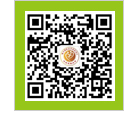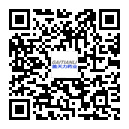20
2021
-
01
"Modern Pediatric Disease Diagnosis and Treatment Essence"-Huai Qi Huang Granules
In the book "Modern Pediatric Disease Diagnosis and Treatment Essence" published by Science and Technology Literature Publishing House in June 2020, experts and scholars discussed the treatment of some kidney and respiratory diseases with Huaiqihuang Granules from the perspective of Chinese medicine. It mainly covers the following diseases: acute and chronic glomerulonephritis, nephrotic syndrome, IgA nephropathy, allergic purpura nephritis and recurrent respiratory tract infections.
1. acute glomerulonephritis
Acute glomerulonephritis is the most common kidney disease in children. In traditional Chinese medicine, it belongs to the category of "feng shui", "yang shui" and "drowning blood" in "edema" ("su Wen · water heat acupoint theory"). The "Heat in the lower coke causes blood in the urine" in the "Synopsis of the Golden Chamber · Five Zang-organs Wind-Cold Accumulation Disease" is a record of the syndrome of hematuria in acute nephritis, which exactly corresponds to the "drowning blood" in the "Su Wen · Water Heat Acupoint Theory" The concept.
1. TCM Syndrome Differentiation
The syndrome differentiation of TCM on acute glomerulonephritis is divided into feng shui flooding (further subdivided into wind-cold external beam and wind-heat attack table), damp-heat internal abundance and yin deficiency damp-heat. Lead to edema, urination, thirst and hematuria.
2. Usage and dosage of Huai Qi Huang
Huaiqihuang granules replenish qi and nourish yin, which is suitable for acute glomerulonephritis caused by yin deficiency. At the same time, the effect of Huaier "treating wind" can be applied to acute glomerulonephritis caused by exogenous wind evil. In the book, experts suggest: children aged 1-3 years old twice a day, one and a half bags (5g); Patients aged 3-12 years old have one bag (10g) twice a day.
II. Chronic Glomerulonephritis
Chronic glomerulonephritis belongs to the category of "edema" and "deficiency" in traditional Chinese medicine, which is closely related to "moisture" and "retention of urine. Edema was first seen in "Lingshu-Water Swelling": "The stomachache starts with water, and the eyeball is slightly swollen, such as the shape of the new lying up, its neck pulsating, cough, yin and femoral cold, swollen feet and shin, the abdomen is large, its water has become. Press its abdomen with your hand, and rise casually, such as wrapped in water, this its waiting also." Void labor is found in the "Neijing" and is based on the theory of emptiness, that is, "the essence of qi is emptiness".
1. TCM Syndrome Differentiation
The syndrome differentiation of chronic glomerulonephritis focuses on "deficiency", which is divided into spleen and kidney qi deficiency, liver and kidney yin deficiency and qi and yin deficiency. The clinical manifestations are fatigue, backache and lumbago, five heartache, thirst for drink, edema and other symptoms.
2. Usage and dosage of Huai Qi Huang
Huaiqihuang Granules Yiqi Yangyin, suitable for Qi deficiency, Yin deficiency or Qi and Yin deficiency of chronic glomerulonephritis in children. Expert advice: children aged 1-3 years old twice a day, one and a half bags (5g); Patients aged 3-12 years old have one bag (10g) twice a day.
III. Nephrotic Syndrome
Nephrotic syndrome belongs to the category of "edema" in traditional Chinese medicine, which is closely related to "low back pain" and "deficiency. Edema was first seen in "Neijing", which is called "water", and is divided into feng shui, stone water and gushing water according to different symptoms.
1. TCM Syndrome Differentiation
Like chronic glomerulonephritis, nephrotic syndrome also focuses on "deficiency". Divided into spleen and kidney yang deficiency, spleen and kidney qi deficiency, liver and kidney yin deficiency and yin and yang deficiency. The clinical manifestations are edema, sallow complexation, soreness of waist and knees, hot flashes, night sweats, five upset fever, adverse urination and other symptoms.
2. Usage and dosage of Huai Qi Huang
Huaiqihuang Granules Yiqi Yangyin, suitable for Qi deficiency, Yin deficiency or Qi and Yin deficiency of children with nephrotic syndrome. Expert advice: children aged 1-3 years old twice a day, one and a half bags (5g); Patients aged 3-12 years old have one bag (10g) twice a day.
Four. IgA nephropathy
IgA nephropathy occurs in children and young adults, characterized by diffuse IgA deposition in the glomerular mesangial area, with varying degrees of mesangial proliferation, clinical manifestations of recurrent episodes of visible hematuria and microscopic hematuria. Traditional Chinese medicine believes that IgA nephropathy belongs to the category of "blood in urine", "low back pain" and "virtual labor. "flaccidity theory": "sorrow is too much, the collaterals are not, the collaterals are not, the collaterals are blocked, the internal movement of qi is blocked, the hair is broken, and the blood is counted." "The origin of all diseases" said: "the heart is mainly in the blood, and the small intestine, if the heart has heat, knot in the small intestine, so urinal blood." These descriptions are similar to the characteristics of this disease. "On the Origin and Pathology of Various Diseases" also said: "The kidney is strained, the meridians are injured, and the wind is cold, and the blood is beating, so the low back pain is also caused."
1. TCM Syndrome Differentiation
TCM differentiation of IgA nephropathy is divided into "deficiency", "blood stasis" and damp-heat. Deficiency syndrome is divided into lung and kidney qi deficiency, qi and yin deficiency, spleen and kidney yang deficiency, liver and kidney yin deficiency and spleen deficiency water, stasis syndrome for qi stagnation and blood stasis. The clinical symptoms include fatigue, soreness of the waist and knees, five heartache and fever, and unfavorable urination.
2. Usage and dosage of Huai Qi Huang
For children with qi and yin deficiency, Huaiqihuang Granules can benefit qi and nourish yin. For children with qi stagnation and blood stasis, Huaiqi Huang Granules can not only benefit qi, but also have the effect of "promoting blood circulation and breaking blood. Expert advice: children aged 1-3 years old twice a day, one and a half bags (5g); Patients aged 3-12 years old have one bag (10g) twice a day.
5 Henoch-Schonlein purpura nephritis
Allergic purpura nephritis refers to kidney damage caused by allergic purple, which is one of the most common secondary kidney diseases in children. The kidney is one of the four most frequently involved organs (skin, joints, gastrointestinal, kidney) in allergic purpura. In traditional Chinese medicine, allergic purpura nephritis belongs to the category of "muscle bleeding", "urine blood" and "edema.
1. TCM Syndrome Differentiation
TCM syndrome differentiation of allergic purpura nephritis focuses on "stasis", that is, stasis with deficiency or external evil, divided into wind-heat toxin with blood stasis, damp toxin with blood stasis, blood heat with blood stasis, spleen and kidney deficiency with blood stasis, liver and kidney yin deficiency with blood stasis and qi and yin deficiency with blood stasis. Clinical visible skin erythema, purple spots, fatigue, waist and knees, adverse urination, edema and other symptoms.
2. Usage and dosage of Huai Qi Huang
Huaiqi yellow particles in the locust ear has the effect of "breaking blood", suitable for blood stasis. At the same time, Huaiqihuang Granules can benefit Qi and nourish Yin, and can treat allergic purpura nephritis caused by Qi deficiency, Yin deficiency or Qi and Yin deficiency. Expert advice: half a bag to a bag, twice a day.
VI. Recurrent respiratory infections
Recurrent respiratory tract infection is the most common disease in children. If children have frequent upper respiratory tract infection or lower respiratory tract infection within one year and exceed a certain range, it is called recurrent respiratory tract infection. Traditional Chinese medicine believes that children's skin is tender and thin, Cou Li is not dense, the qi outside the guard is not solid, and they are susceptible to external pathogens. In particular, those who are not properly nurtured are more likely to suffer from foreign sensitivities. Those who are susceptible to external pathogens are also closely related to the weakness of the lungs and spleen. The reason is that the lung belongs to both Taiyin and is the dirty of the mother and son. If the spleen is deficient, the soil cannot produce gold. The biochemical source is insufficient. Qi and blood cannot nourish the lung. The lung is also deficient. If the lung and spleen are deficient, the lips are pale and unadorned. The human body is weak and weak. Those who are timid are naturally susceptible to external pathogens.
For children with recurrent respiratory tract infection caused by yin deficiency of lung and spleen, Huaiqihuang Granules are recommend used in the book. Experts suggest that children aged 1-3 years old should be given half a bag (5g) twice a day. Patients aged 3-12 years old are given one bag (10g) twice a day. in order to achieve the purpose of replenishing the deficiency and strengthening the body.
More news





